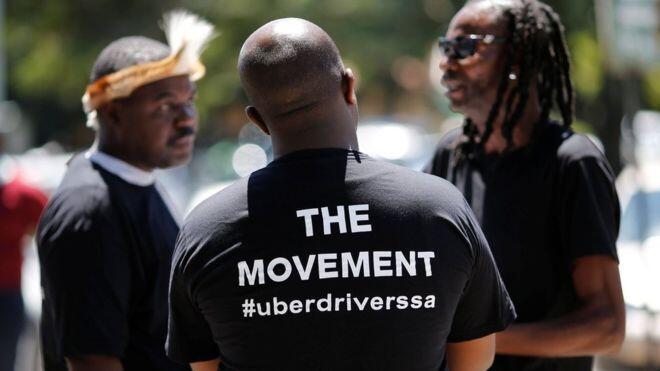Uber’s relationship with its drivers has become increasingly strained, the company admitted on Tuesday, as it vowed to improve its service.
The ride-sharing firm told the media some of its policies were “unintentionally stacked against drivers”.
In particular, drivers for the company will now have more ability to defend themselves against rider complaints and refunds.
Uber also spoke about its continuing investigation into allegations of sexual harassment and “toxic” working culture.
The news follows the recent departure of the company’s president Jeff Jones, who said the “beliefs and approach” at Uber were “inconsistent” with his own views. Part of Mr Jones’s job at the company had been to manage the relationship between the company and its drivers.
Mr Jones held a Q+A session with drivers in February which provoked angry responses – one driver remarked: “The ONLY thing you made clear to the majority of us is that you don’t have ANY productive answers.”
Real-time ID
Rachel Holt, who manages Uber’s operations in the US and Canada, conceded that the firm had underinvested in the driver experience and that the firm was now “re-examining everything we do”.
Last month, Uber’s embattled chief executive Travis Kalanick was recorded arguing with a driver about falling fares. The incident prompted Mr Kalanick to admit he needed “leadership help”. The company later announced it was hiring a chief operating officer.
Central to Uber’s plan to appease its drivers is giving more weight to their own defence in the face of customer complaints.
Ms Holt cited the example of a driver in Toronto who had worked more than 8,000 trips – but after receiving just three complaints was barred from using the service (though he was later reinstated).
Ms Holt said drivers who had amassed a long history of trips would be treated differently to a newer driver.
“We need to bring more humanity to the way we interact with drivers,” Ms Holt said in a call with reporters.
“We’re updating many customer support policies that were unintentionally stacked against drivers.
“We also need to give drivers a say in fare adjustments instead of relying on what a rider tells us.”
However, the promises fell short of what many drivers have been calling for.
“If Uber truly cares about ‘growing up’ and listening to drivers, they should start by adding a tipping option,” said Ryan Price from the Independent Drivers’ Guild, an organisation that represents ride-sharing workers in New York.
“That’s the number one request from drivers.”
Rival services such as Lyft allow riders to use the app to tip drivers after a ride has completed – but Uber has so far rejected adding the option.
Sexism update
In February Uber was rocked by a former employee’s devastating assessment of her time working at the company. She detailed several instances of sexual harassment and a culture that did not welcome women.
In response, Uber announced it would launch an investigation led by Eric Holder, who served under President Barack Obama as attorney-general, the highest ranking police officer in the US.
Liane Hornsey, Uber’s new head of human resources, said more than 100 “listening sessions” had taken place across the company.
“The focus of the company has been on the business and not the employees,” she told reporters.
She said the atmosphere at the company had created a “cult of the individual”.
The company reiterated its promise to release a report on diversity at Uber by the end of this month.
Follow Dave Lee on Twitter @DaveLeeBBC. You can reach Dave securely through encrypted messaging app Signal on: +1 (628) 400-7370











